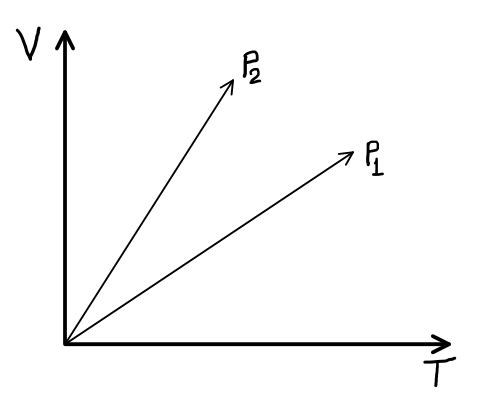Complete Solutions to Ideal Gas Equation of chapter KINETIC THEORY OF GASES AND THERMODYNAMICS of Class 11 book with complete answers and questions
| Class 11 | PHYSICS |
| Chapter | KINETIC THEORY OF GASES AND THERMODYNAMICS |
| A2Z | Ideal Gas Equation |
| Number Of Questions | 32 |
| Academic Year | 2023-24 |
Figure shows the volume versus temperature graph for the same mass of a gas (assumed ideal) corresponding to two different pressure `P_(1) and P_(2)`. Then
02:56View SolutionA volume V of air saturated with water vapour experts a pressure P. Pressure of saturated vapour is `P_(0)`. If the volume is made `V//2` isothermally, the final pressure will be
02:58View SolutionDuring an experiment, an ideal gas is found to obey an additional law `VP^2=constant,` The gas is initially at a temperature T, and volume V. When it expands to a volume `2V,` the temperature becomes…….
01:59View SolutionA vessel containing `0.1 m^(3)` of air at `76 cm` of Hg is connected to an evacuated vessel of capacity `0.09 m^(3)`. The resultant air pressure is:
02:06View SolutionTwo gases `A` and `B` having the same temperature `T`, same pressure `P` and same volume `V` are mixed. If the mixture is at the same temperature and occupies a volume `V`, then the pressure of the mixture is
02:18View SolutionIf N is Avogadro's number, then the number of molecules in `6 g` of hydrogen at NTP is
01:41View SolutionA gas is at on atmosphere. To what pressure it should be subjected at constant temperature so as to have to its initial volume?
View SolutionIf the volume of air at `0^(@)C` and `10 atmospheric` pressure is `10 litre`. Its volume, in litre, at normal temperature and pressure would be
02:40View SolutionIt is required to doubled the pressure of a gas in a container at `27^(@)C` by heating it. To what temperature the gas should be raised?
01:20View SolutionA sample of a perfect gas occupies a volume V at a pressure P and obsolete temperature T. The mass of each molecules is m, which of the following expression given the number of molecules in the sample?
01:51View SolutionIn order to increase the volume of a gas to `3` times at constant pressure at `40^(@)C`, the final temperature should be
02:05View SolutionAt a constant pressure, of the following graphs that one which represents the variation of the density of an ideal gas with the absolute temperature T, is
02:28View SolutionFigure shows the pressure P versus volume V graphs for a certains mass of a gas at two constant temperature `T_(1) and T_(2)`. Which of the following interface is correct?
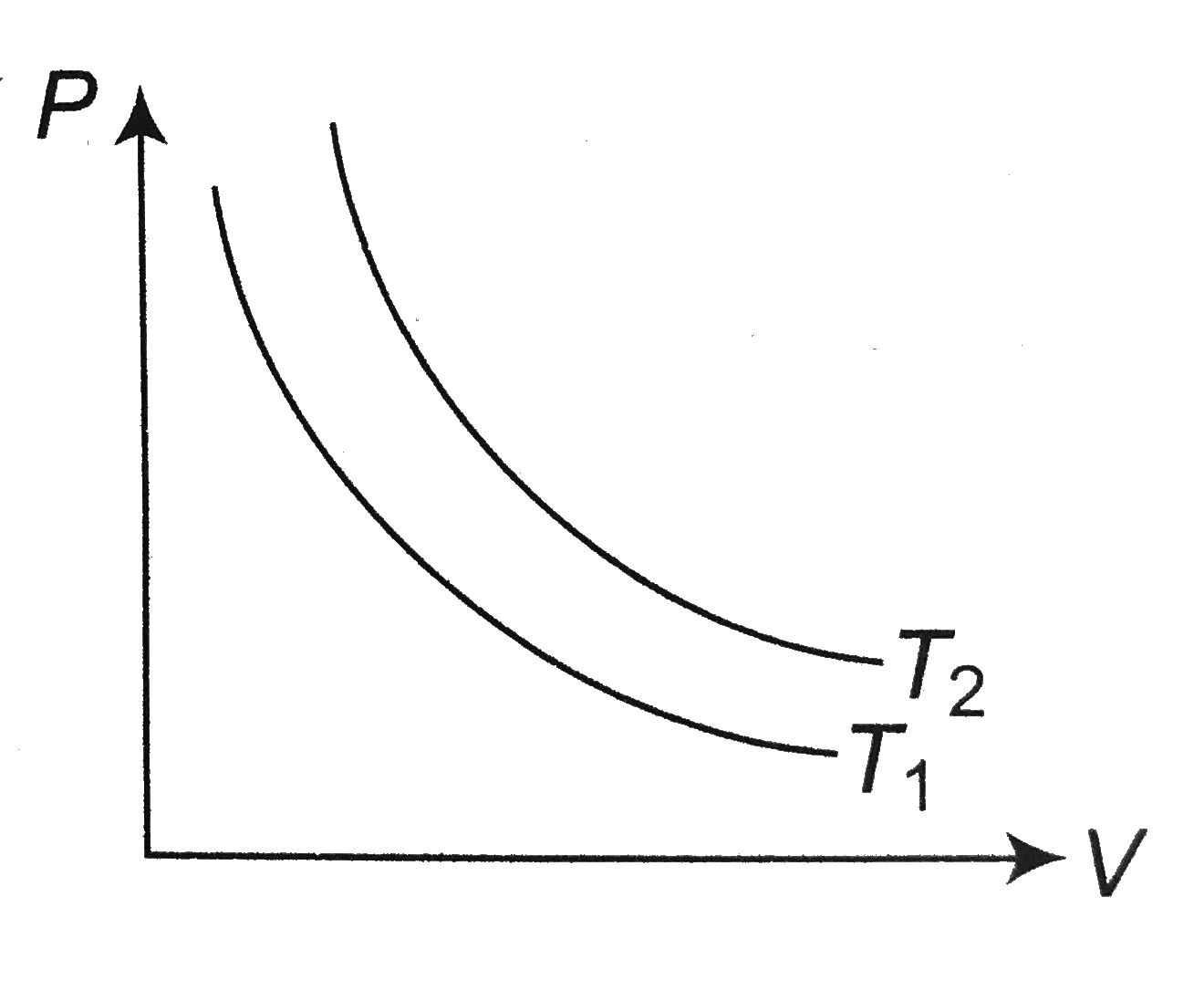 01:42View Solution
01:42View SolutionFigure shows graphs of pressure vs density for an ideal gas at two temperature `T_(1) and T_(2)`. Which of the following is correct?
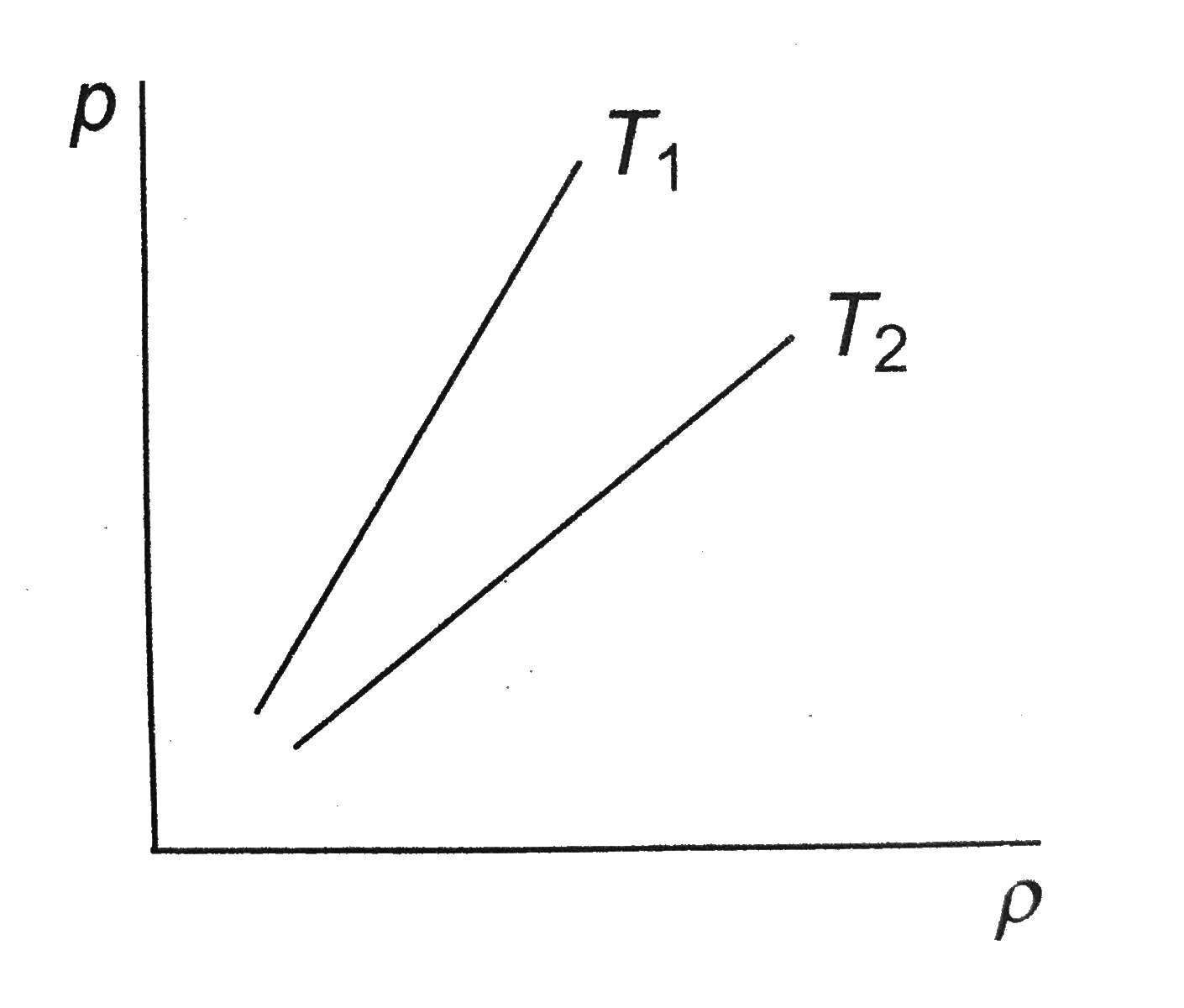 03:02View Solution
03:02View SolutionSuppose ideal gas equation follows `VP^(3) = constant`. Initial temperature and volume of the gas are T and V respectively. If gas expand to `27V` temperature will become
03:49View SolutionTwo spherical vessel of equal volume are connected by a n arrow tube. The apparatus contains an ideal gas at one atmosphere and `300 K`. Now if one vessel is immersed in a bath of constant temperature `600 K` and the other in a bath of constant temperature `300 K`. then the common pressure will be
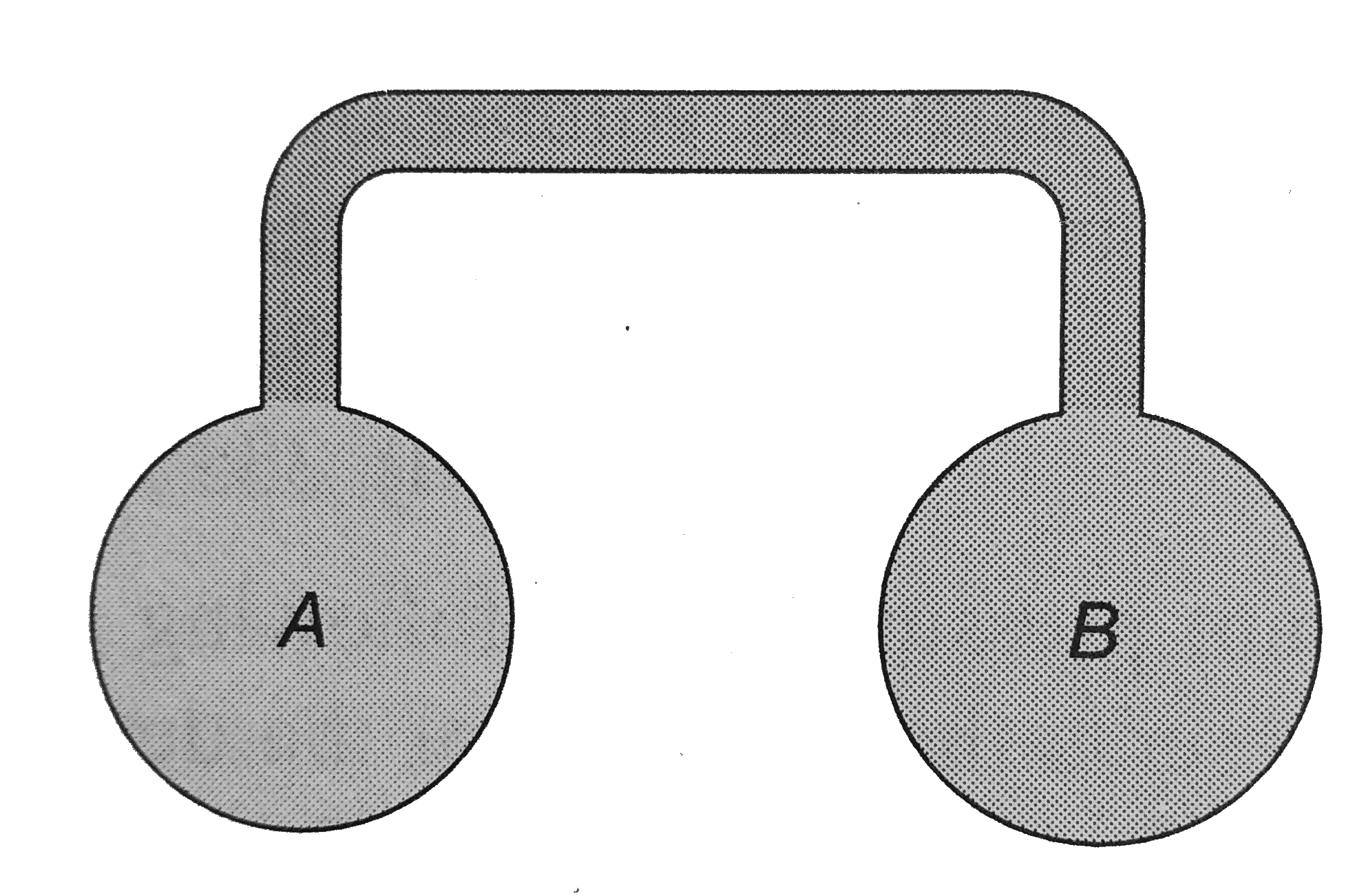 04:31View Solution
04:31View SolutionPressure versus temperature graphs of an ideal gas are as shown in figure. Choose the wrong statement
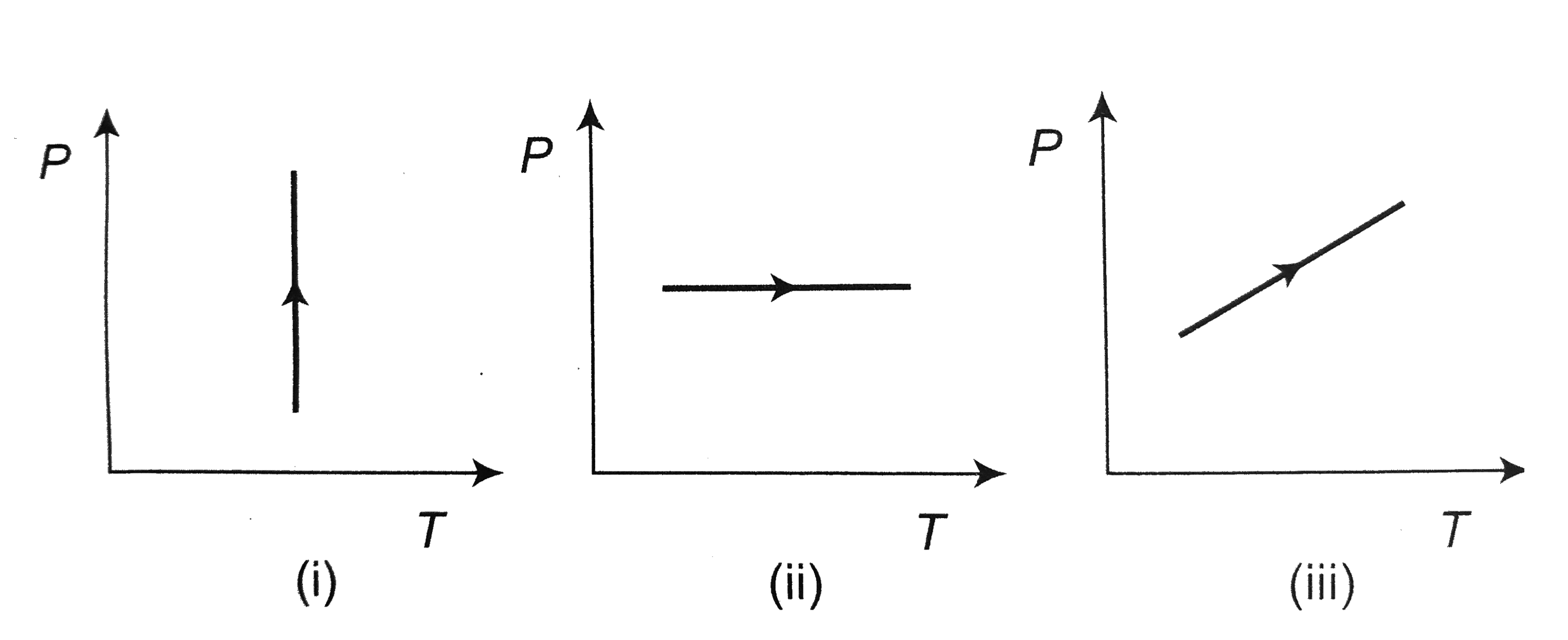 04:07View Solution
04:07View SolutionDensity vs volume graph is shown in the figure. Find corresponding pressure vs temperature graph
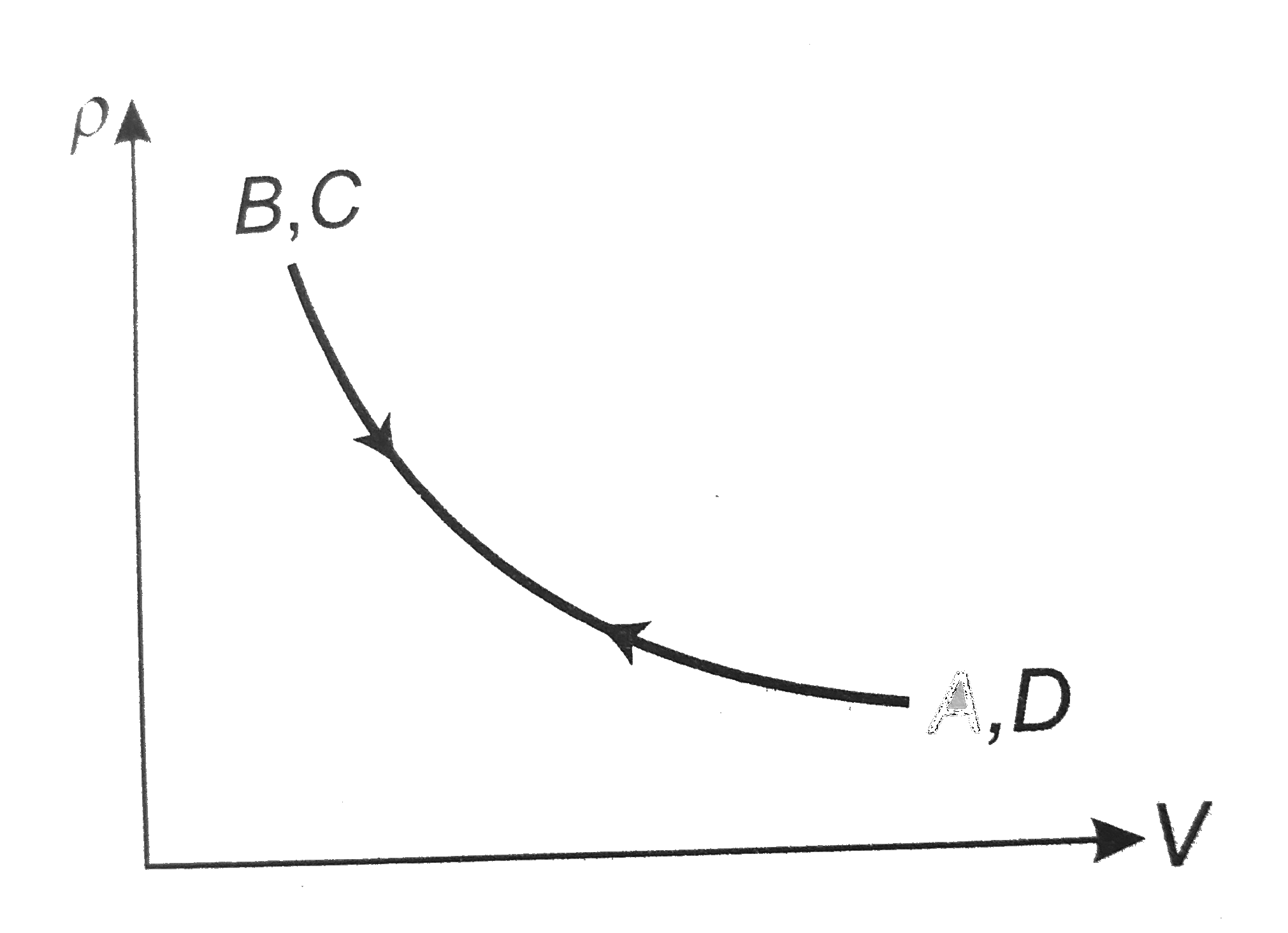 View Solution
View SolutionThe initial temperature of a gas is `100^(@)C`. The gas is contained in closed vessel. If the pressure on the gas is increased by `5%` calculate the increase in temperature of the gas
View SolutionA closed hollow insulated cylinder is filled with gas at `0^(@)C` and also contains an insulated piston of negligible weight and negligible thickness at the middle point. The gas on one side of the piston is heated to `100^(@)C`. If the piston moves `5 cm` the length of the hollow cylinder is
05:38View SolutionThe air tight and smooth piston of a cylindrical vessel are connected with a string as shown. Initially pressure and temperature of the gas are `P_(0)` and `T_(0)`. The atmospheric pressure is also `P_(0)`. At a later time, tension in the string is `(3)/(8) P_(0)A` where A is cthe cross-sectional are of the cylinder. at this time, the temperature of the gas has become.
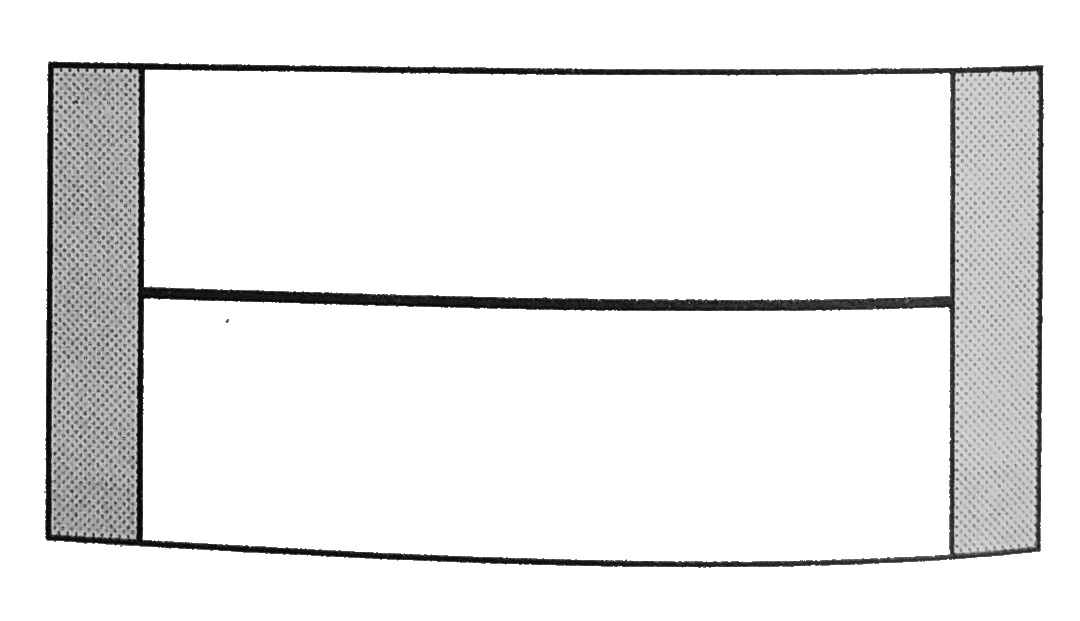 03:43View Solution
03:43View SolutionAn ideal gas has a volume of `3 V` at `2` atmosphere pressure. Keeping the temperature constant. Its pressure is doubled. The volume of the gas will be
View SolutionThe volume of a given mass of a gas at `27^(@)C`, `1 atm` is `100 cc`. What will be its volume at `327^(@)C`?
02:27View SolutionA vessel of volume `1660 cm^(3)` contains `0.1 "mole"` of oxygen and `0.2 "mole"` of nitrogen. If the temperature of the mixture is `300 K`, find its pressure.
03:35View SolutionOne litre of helium gas at a pressure `76 cm`. Of Hg and temperature `27^(@)C` is heated till its pressure and volume are double. The final temperature attained by the gas is:
04:11View SolutionA constant pressure `V_(1)` and `V_(2)` are the volumes of a given mass of a gas at temperature `27^(@)C` and `54^(@)C` respectively. Then the ratio `(V_(1))/(V_(2))` will be
02:13View SolutionIn which of these diagrams, the density of an ideal gas remains constant?
03:28View Solution`V = k((P)/(T))^(0.33)` where k is constant. It is an,
01:33View SolutionThe densities at points A and B are `rho_(0)` and `(3 rho_(0))/(2)`. Find the value of x on P-axis.
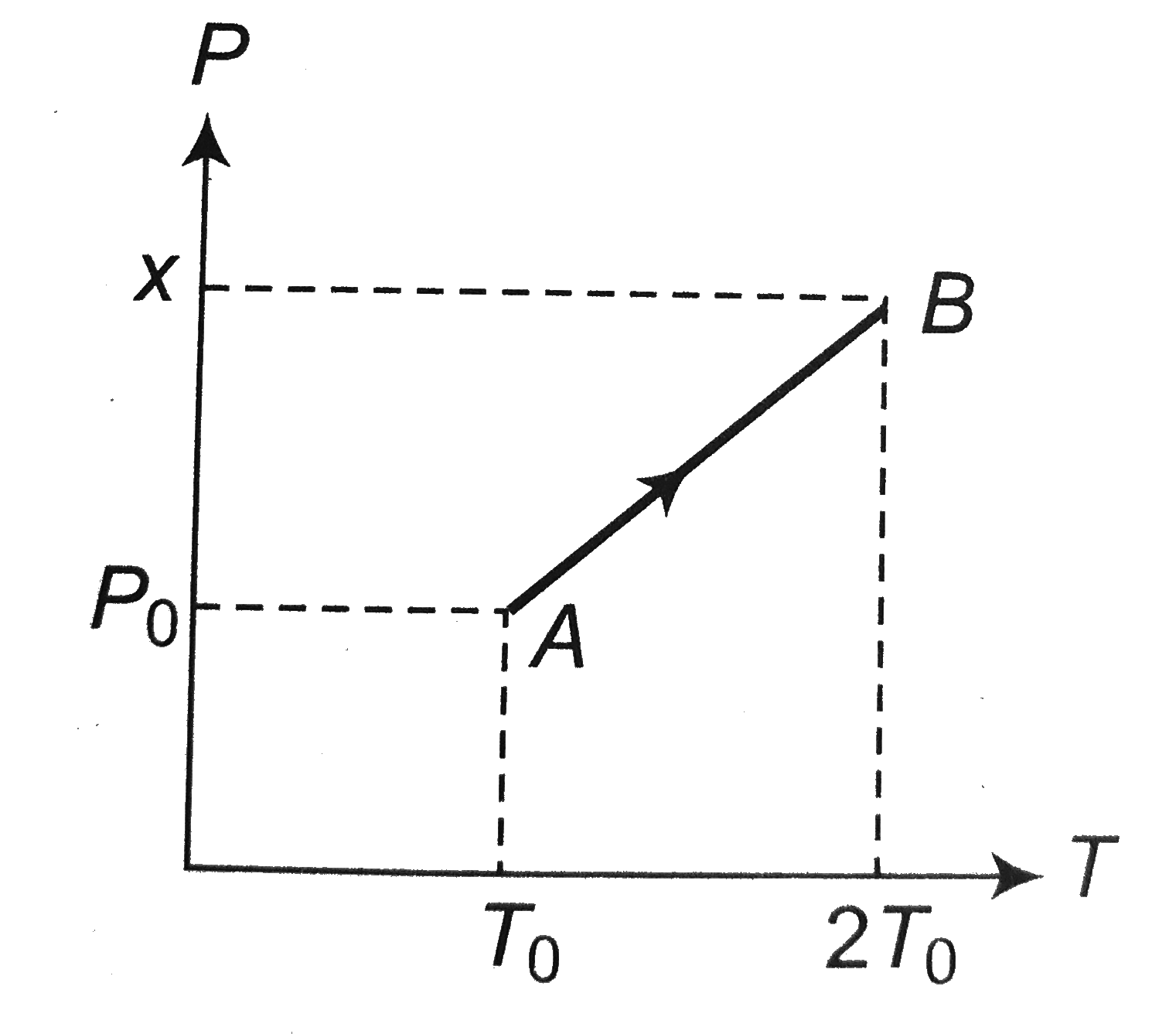 02:57View Solution
02:57View SolutionThe given curve represents the variation of temperatue as a function of volume for one mole of an ideal gas. Which of the following curves best represents the variation of pressure as a function of volume ?
(##DCP_V03_C20_E01_099_Q01##).02:19View SolutionOne mole of an ideal gas undergoes a process `P = P_(0) [1 + ((2 V_(0))/(V))^(2)]^(-1)`, where `P_(0) V_(0)` are constants. Change in temperature of the gas when volume is changed from `V = V_(0) to V = 2 V_(0)` is:
03:48View SolutionTwo identical vessels contain the same gas at pressure `P_(1)` and `P_(2)` at absolute temperature `T_(1) and T_(2)`, respectively. On joining the vessels with a small tube as shown in the figure. The gas reaches a common temperature T and a common pressure P. Determine the ratio `P//T`
 03:21View Solution
03:21View Solution
Ideal Gas Equation questions and complete solutions for chapter KINETIC THEORY OF GASES AND THERMODYNAMICS of A2Z PHYSICS (HINGLISH) of Class 11

